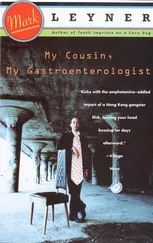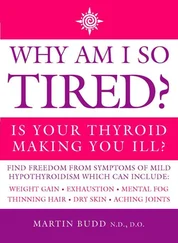CAN A HAIR SAMPLE BE USED IN A DRUG TEST?
Hold the Rogaine. If you are bald, there may be another advantage besides the cost savings on hair products. You won’t have any hair to offer for your drug test.
As drugs are ingested into the body, they circulate in a person’s bloodstream. Trace amounts of these drugs or the drug metabolites are deposited in the hair follicle. As the hair grows, they remain stored in the core of the hair shaft.
When a person is tested, samples are taken at various levels in the hair shaft so that a reasonably accurate approximation can be made of how long ago a particular drug was used. Drugs or drug metabolites cannot be washed, bleached, or flushed out of the hair follicle.
The major practical advantage of hair testing compared with urine testing for drugs is that it can show that drug use occurred in the past weeks to months, depending on the length of the hair shaft, versus within only the past two to four days for other tests. Hair analysis is the least invasive of the testing methods but might not reveal recent use. Blood analysis is the most accurate but definitely invasive. Urine analysis is typically the least expensive and can detect infrequent or a recent single use. Urine analysis is the most commonly used form of drug testing.
So, if you constantly hit the bong, you might want to consider shaving your head.
WILL A SHOT OF BOURBON CURE A COLD?
There has been much discussion and research over the years on the health benefits of alcohol. In the 1920s the “Guinness Is Good for You” campaign in the United Kingdom made people believe that this famous Irish stout had health properties. The slogan stemmed from intense scientific market research: people told the company that they felt good after a pint, and the slogan was born.
Echinacea, vitamin C, zinc, and chicken soup, as well as a stiff belt, have all been postulated to prevent or cure the common cold. Unfortunately, there is no strong evidence for any of these choices. There are many other home remedies, several of which include brandy or whiskey. A friend has her own recipe, combining vodka and orange juice into a screwdriver, as her own special cold cure. Most likely the buzz just helps you forget how bad you feel.
DOES PUTTING SOMEONE IN A SHOWER OR GIVING HIM OR HER COFFEE STOP A DRUG OVERDOSE?
Alcohol is the most common drug that leads people to throw their friends in the shower or force-feed them coffee. Time is the only thing that will sober up a drunk person. Coffee, showers, exercise, sweating it out, fresh air, or any other method will not increase the rate at which alcohol is eliminated from the body. The liver just needs the time to metabolize the alcohol.
As for other, more hardcore drugs, the coffee won’t help, but keeping someone awake until help arrives could be a lifesaver. Heroin and other opiates cause you to stop breathing, and this leads to cardiac arrest. Remember, coffee is only a temporary measure and medical help should be sought for any drug overdose. If someone stops breathing, you should begin CPR. The shower is probably unnecessary, and a big waste of precious time.
WHY DO YOU THROW UP WHEN YOU DRINK TOO MUCH?
Vomiting from excessive drinking is simply your body’s way of getting rid of the toxins in alcohol quickly. Vomiting is not a bad thing in this case, but repeated hurling can lead to potentially life-threatening dehydration and electrolyte imbalances. There is also the danger of choking on vomit, like the guy from Led Zeppelin.
The urge to vomit comes from two anatomically and functionally separate units — a vomiting center and a chemoreceptor trigger zone. The vomiting center, which has overall control of vomiting, is located in the part of the brain called the medulla. The chemoreceptor trigger zone, which sends signals to the vomiting center, is found in the fourth ventricle of the brain. The ventricles are a system of four communicating cavities in the brain that are filled with cerebrospinal fluid. Alcohol probably acts on the chemoreceptor trigger zone.
In the hospital vomiting is referred to as emesis, but many doctors prefer these more colorful terms:
puke
barf
uneat
blow chow
ride the porcelain bus
pray to the porcelain god
technicolor yawn
toss your cookies
lose your lunch
feed the fish
spill the groceries
DOES TAKING ECSTASY CAUSE YOU TO LOSE YOUR MEMORY?
This is a question that gets asked a lot, both because of the increasing popularity of Ecstasy and the fact that people keep forgetting that they asked in the first place. So, yes, Ecstasy probably does cause memory loss.
Ecstasy, or MDMA (3–4 methylenedioxymethamphetamine), is a synthetic psychoactive drug chemically similar
to the stimulant methamphetamine and the hallucinogen mescaline. Some refer to it as a “designer amphetamine.”
One of the major results from the use of Ecstasy is that both in short-term and long-term use it could have serious effects on brain cells. Specifically, Ecstasy harms neurons that release serotonin, a brain chemical thought to play an important role in regulating memory and other important functions. Case reports and interviews with Ecstasy users report memory loss, depression, alterations in sleep, and anxiety. Memory deficits seem to persist even after stopping the use of Ecstasy.
DOES DRINKING KILL BRAIN CELLS?
In the process of researching this book, the authors had a working dinner, and in the course of our hard work, we consumed large quantities of beer, wine, and tequila. As we stumbled down the street, Mark insisted that he was fine to take the train home. Better judgment prevailed, and I wrestled him into a cab. The cab drove away and I started to walk home. A block later, I came upon the cab and found Mark fumbling with his empty wallet in the backseat. I opened the door. Mark, with no memory of our evening, said, “What are you doing here?” Alcohol surely kills brain cells.
To properly answer this question we must separate light to moderate drinking from heavy drinking. We also need to separate temporary from permanent damage.
In general, alcohol doesn’t specifically kill brain cells but alcohol damages the dendrites, the small branches that extend from the cells and receive information. The mechanism of action for intoxication is multifactorial but the end result is the slurred speech, clumsiness, slow reflexes, and loss of inhibition that we associate with being drunk. This damage isn’t permanent in light to moderate usage. This means you can have one to seven drinks a week and be just fine.
Heavy alcohol use does clearly cause neurological damage. CT scans of chronic alcoholics can show brain atrophy and studies have shown that heavy use damages retrospective memory. Alcoholism can produce Wernicke-Korsakoff syndrome, which is caused by deficiency of the B-vitamin thiamine; alcohol decreases the absorption of this vitamin, and alcoholics also don’t have the healthiest diets. Patients with this condition have symptoms such as confusion, delirium, disorientation, inattention, memory loss, and drowsiness. If thiamine is not given promptly, the syndrome may progress to stupor, coma, and death.
WHY DOES THE BED SPIN AFTER A LONG NIGHT AT THE BAR?
Nothing is worse than the moment when you hit the sheets and the room starts to spin. Trying to explain why this happens causes almost as much dizziness.
Читать дальше












